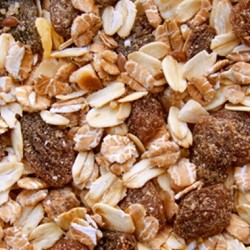 Metabolic and Molecular Imaging Group’s advice for dieters
Metabolic and Molecular Imaging Group’s advice for dieters
Skipping breakfast can prime the brain’s reward centres to crave calorie-rich foods, according to a recent CSC study published in the European Journal of Neuroscience.
20 healthy, non-obese subjects were randomly allowed or denied breakfast on two separate mornings at least six days apart, following overnight fasting. Those given breakfast were told to eat until they felt full. About 90 minutes later, both the fasted and fed subjects were shown images of high-calorie and low-calorie foods, in addition to ‘neutral’ images of household objects, while oxygen-dependent activity in brain regions associated with reward was measured by functional MRI. While being scanned, each subject was also questioned on how appealing they considered the food image to be.
The researchers measured enhanced brain reward-centre activity when subjects denied breakfast were shown images of high calorie foods, as compared to images of low calorie foods, matching higher visual appeal ratings given for high-calorie foods when the subjects were questioned. In contrast, those fed breakfast reported no preference for high-calorie over low-calorie foods – a result commensurate with observed diminished reward-centre activity enhancement .
Consultant Endocrinologist Tony Goldstone from the CSC’s Metabolic and Molecular Imaging Group explains:
“Our results support the advice for eating a healthy breakfast as part of the dietary prevention and treatment of obesity. When people skip meals, especially breakfast, changes in brain activity in response to food may hinder weight loss and even promote weight gain.”
The studies findings could help inform treatment of obesity: “The hope is to develop drugs that prevent this activation of the brain’s reward circuitry and thus reduce the appeal of high-calorie over low-calorie foods.”
This work was published in:
European Journal of Neuroscience, Vol. 30, pp. 1625–1635, 2009.
The research was also reported in The Sun
